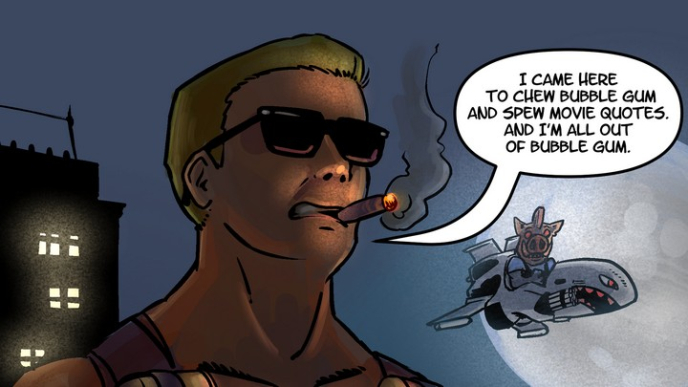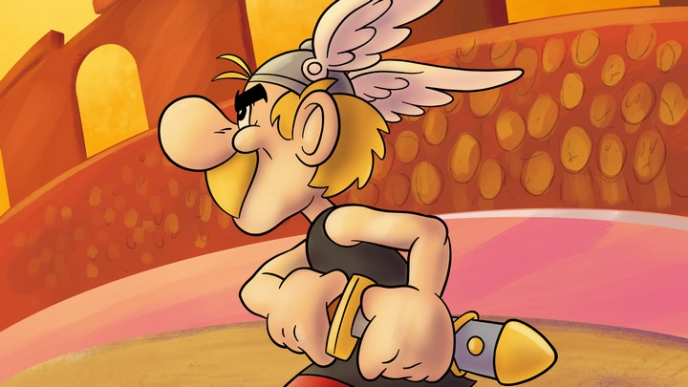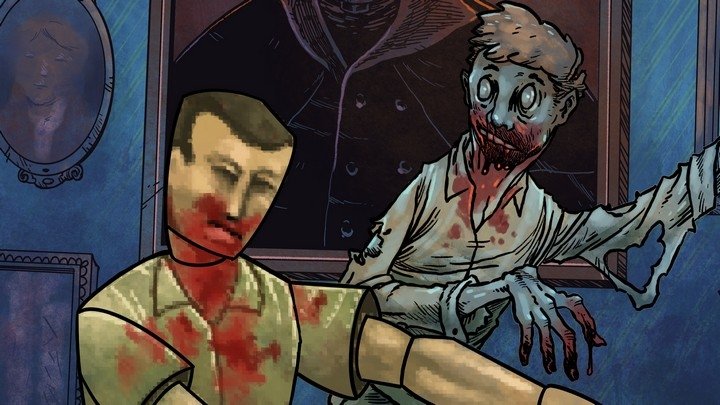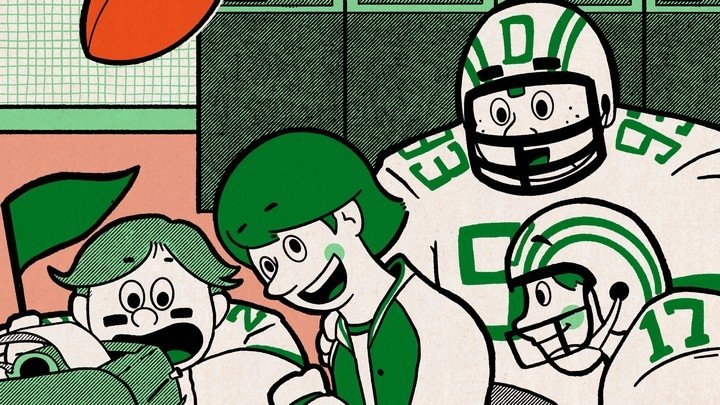Retro Re-release Roundup, week of June 15, 2023
I'm seeing double! Four derivative brawlers!
This week's roundup includes an inexplicable return to the era of Game Boy tie-in shovelware courtesy of McDonalds, and I have to say, I... don't... hate it?
ARCADE ARCHIVES
Megablast
- Platform: Nintendo Switch, PlayStation 4
- Price: $7.99 / €6.99 / £6.29
- Publisher: Hamster / Taito

What's this? A horizontally-oriented sci-fi shooting game, originally developed and distributed in arcades by Taito in 1989, with a sole reissue via the Taito Memories series of compilations for PlayStation 2. The player's ship is equipped with four options on top, bottom, front and back; each option will fire simultaneously with the press of the game's single button, and can be individually upgraded by collecting power orbs.
Why should I care? This game has a reputation as one of Taito's very worst late-'80s arcade games, and I feel it doesn't deserve such scorn: it's certainly quite easy and not especially engaging, nor is it much to look at outside of the giant Taito-homage bosses, but the music (composed not by Taito's in-house band, Zuntata, but by Hidetoshi Fukumori, the same outsourced composer who scored Gun Frontier), but I'm sure there are plenty of people who don't necessarily want nor expect games of this type to murder them every thirty seconds, and you may very well be one of them.
Useless fact: Megablast was originally designed with a cross-shaped 4-button layout that challenged players to manually shoot in each of the four directions using individual buttons, but was changed to a one-button game when the developers noticed players very quickly defaulted to simply holding down all four buttons at all times. One might have hoped the control change would have been accompanied with rebalanced stage and enemy design, but what's done is done.
G-MODE ARCHIVES+
Game Tengoku
- Platform: Nintendo Switch (Japan)
- Price: ¥800
- Publisher: G-MODE / City Connection
What's this? The 2007 feature phone version of Jaleco's crossover shooting game Game Tengoku, originally released in arcades in 1995 and on Sega Saturn in Japan in 1997, with a heavily-remixed PlayStation version released in 1998 and a modern remaster released for Switch, PlayStation 4 and PC from 2018; this conversion is based on the Saturn port and does its best to approximate the original within the specs of a modest phone game.
Why should I care? As with some of the other shooting game adaptations that have been reissued via G-MODE Archives+, the compromises are obvious — what was once a very fast game is now quite sedate, and the bosses' animations and several parts each stage have been very obviously truncated due to space constraints — but the developers were able to provide a degree of playability that rivals any of its contemporaries, and as cut-back as the visuals may be, they're still remarkably close to those of the original Saturn game.
Useless fact: While most of the music consists of simple sequenced renditions of the original tunes, they did cram in a streamed audio track for a particular karaoke-themed boss (and you'd have to imagine that one song forced them to cut a ton of other data...)
QUBYTE CLASSICS
- Platform: Nintendo Switch, PlayStation 4+5, Xbox (worldwide)
- Price: $9.99 or equivalent
- Publisher: QUByte / Piko Interactive
What's this? A double pack containing two Super Nintendo brawlers — 1994's Legend and 1995's Iron Commando, originally released exclusively for Super Famicom — originally developed by the small European studio Arcade Zone; this package offers both games with a very modest assortment of screen and controller options, with multiplayer limited to local-only.
Why should I care? You want to try a couple of games that take a shameless amount of influence from certain Capcom and Irem arcade brawlers, and you're willing to go in with the understanding that you're probably not going to want to play either of them a second time.
Useless fact: Some of you might be reminded of another brawler, also titled Legend, released for the original PlayStation: that game was a polygonal remake of sorts by Arcade Zone's successor studio Toka, and it was followed up by a spiritual successor, Soul Fighter, for the Sega Dreamcast.
HERE'S A BIG OL' DEMO
Ghost Trick demo (Nintendo Switch, PlayStation 4/5, Xbox, PC via Steam)
After years trapped in smartphone re-delisting purgatory, Shu Takumi's over-animated paranormal mystery game Ghost Trick is finally returning to dedicated gaming platforms at the end of this month... and, as one final effort to try and get people to actually play it this time around, they've released a free demo that offers access to a tutorial and prologue, with both progress and certain tertiary gallery unlocks carrying over to the full game.
ROM HACKS & TRANSLATIONS
Grimace's Birthday (Game Boy Color) by, um, McDonalds
...actually, it's by these folk, but yes, McDonalds somehow went along with the idea to produce a brand-new, GBStudio-powered Game Boy game starring Grimace for reasons that I dare not investigate. Just to reiterate: this game is made to authentic Game Boy Color spec, and one can extract the ROM data from the website and play it on real compatible hardware, should they choose to do so. (The ROM's already out there, so you don't have to dig it out for yourself.)
Nakoruru: The Gift That She Gave Me (Sega Dreamcast) translation patch by Derek Pascarella & co.
As with most of SNK's fighting game spinoffs, this adventure game centered on Samurai Shodown favorite Nakoruru was not especially well-received by Japanese fans in its day, but thanks to the efforts of the team behind this fresh translation patch, the English-speaking world will now be able to pass judgment on the game for themselves. In addition to translating and optimizing the base game, they've even produced a bonus disc that includes, among many other things, a subtitled version of the first and only episode of the incomplete OVA based on the game.




